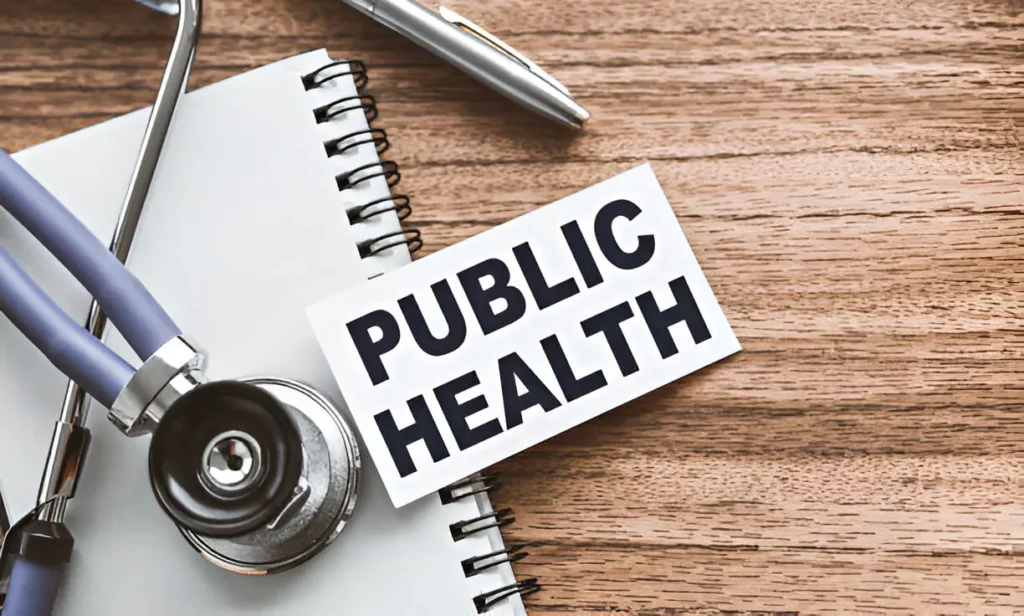Public health is a dynamic and essential field that intersects with various aspects of society, including environmental science, policy, education, and healthcare delivery. Its focus on preventing disease, prolonging life, and promoting human health through organised efforts and informed choices of society, organisations, public and private, communities and individuals is more crucial than ever. As we navigate through public health challenges such as global pandemics, climate change, and health inequities, the need for expertise in this field has become paramount. So, what are the pathways to achieving mastery in public health, and how can one make a tangible impact in this vital sector?
The Journey to a Master of Public Health
Becoming a specialist in public health typically begins with education. A master of public health (MPH) is a multidisciplinary graduate degree that equips students with the public health knowledge and skills needed to address complex health issues. An MPH provides rigorous training in the core competencies of public health, such as epidemiology, biostatistics, environmental health, health policy, and social and behavioural sciences.
Breadth and Depth in Public Health Education
An MPH emphasises both breadth and depth. Students gain a comprehensive understanding of public health’s breadth by exploring various aspects of the field, while also having the opportunity to specialise in a particular area. Specialisations can include global health, community health promotion, health policy, and many others, allowing students to focus their expertise on a sector that aligns with their passions and career aspirations.
Hands-On Experience: A Crucial Element
Critical to mastering public health is the integration of hands-on, practical experience. This typically comes in the form of internships, practicums, or research projects that allow students to apply classroom knowledge to real-world problems. Engaging with communities, working on public health campaigns, or participating in research can provide invaluable experience that translates to expertise in the field.
Interdisciplinary Collaboration
Expertise in public health also demands an ability to work collaboratively across disciplines. Public health professionals often interact with experts in the medical field, government officials, non-profit organisations, and the community. By working in interdisciplinary teams, public health professionals are better equipped to develop comprehensive solutions to health challenges.
Continuing Education and Lifelong Learning
The field of public health is ever-evolving, demanding a commitment to continuing education and lifelong learning. Staying abreast of the latest research, technological advancements, and policy changes is crucial for maintaining expertise. This can involve attending conferences, participating in workshops, obtaining additional certifications, and being engaged in professional organisations.
Leadership Development
Leadership skills are vital for those who aspire to make an impact in public health. Programs that foster leadership can help emerging public health professionals to lead teams, initiatives, and health services effectively. Moreover, these skills enable them to advocate for impactful changes within the healthcare system, influence policy, and drive public health advancements at local, national, and international levels.
Evidence-Based Practice
A cornerstone of public health expertise is the reliance on evidence-based practice. This approach involves integrating individual clinical expertise with the best available external clinical evidence from systematic research. It ensures that public health interventions are rooted in the most up-to-date and valid information, thereby enhancing the effectiveness of health initiatives.
Global Perspective in Public Health
In today’s interconnected world, a global perspective is essential for public health experts. Understanding the worldwide implications of health issues and recognising the importance of cultural sensitivity when working in diverse communities prepare public health professionals for the global stage.
Network Building in the Public Health Community
Building a strong professional network is another critical strategy for mastering public health. By connecting with other professionals in the field, individuals can share insights, foster collaborations, and discover new opportunities for growth and impact. Networking also serves as a platform for mentorship, which can be invaluable for navigating the complexities of public health careers.
Research Contributions and Publications
Making contributions to public health research and literature can further establish an individual’s expertise. Publishing in peer-reviewed journals, contributing to public health reports, or presenting findings at conferences not only helps to advance public health knowledge but also solidifies one’s reputation as an expert in the field.
Career Impact in Public Health
The ultimate goal of mastering public health is to make a lasting impact on individuals and communities. This could mean developing health policies that improve population health outcomes, designing intervention programs that reduce health disparities, or conducting research that leads to groundbreaking health innovations. Regardless of the specific path, the expertise acquired through education and experience enables public health professionals to make significant contributions to the well-being of society.
Conclusion
To master public health is to understand its multifaceted nature and to develop a diverse set of skills that can be applied in various contexts. Through education such as a master of public health, practical experience, interdisciplinary collaboration, and a commitment to lifelong learning, public health professionals can achieve expertise and drive impactful changes in this vital field. The journey to public health mastery prepares individuals not only to address today’s health challenges but also to anticipate and respond to the health needs of the future, shaping a healthier world for generations to come.
Also Read- Boost Your Financial Health with Smart Saving Habits


